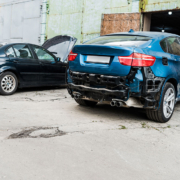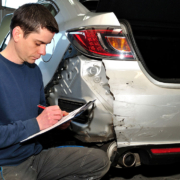What To Expect From A Diminished Value Appraisal
When your vehicle loses value after an accident, you’ll need to find out how much if you plan to file a claim for compensation with your insurance company. This is where a diminished value appraisal comes in. The appraisal is a detailed calculation of the damage to your vehicle and its post-accident value, and it’s a critical first step to getting a fair settlement.
Here’s what to know about diminished value appraisals, what to expect as you go through the process, and how qualified legal support from our experienced damaged car attorneys can benefit you.
What’s Included In A Diminished Value Appraisal
Every vehicle loses value after being in an accident, regardless of the severity of the collision or the pre-accident condition of the car. How much value is the question that needs to be answered next and that’s exactly what an appraisal is designed to do.
There are several things that go into determining this figure in a depreciated value appraisal, including:
- Your vehicle will be inspected or you will be asked to submit a series of specific photos to document the condition of your car and the progress of repairs.
- You will be provided with a complete description of the damage your vehicle sustained, the location and severity of damage, and specific assessments of damage to safety components, vehicle suspension, or its core structure.
- You may be asked to submit photos, sales records, or any other documentation you have of your vehicle prior to the accident.
- You will be given a pre- and post-accident vehicle value and your depreciated value will be calculated for you.
Depending on who does the analysis, you may also get information about selling damaged vehicles, a summary of the appraiser’s experience and background, or a formal report in compliance with the Uniform Standards of Professional Appraisal Practice (USPAP).
What Happens If I Don’t Get An Appraisal?
A diminished value appraisal costs money to get, which many people feel is an extra unnecessary expense that ultimately lowers the total they receive in the end. But if you don’t get an appraisal, it may be harder to prove the damages you’re claiming if your insurance company decides to challenge it.
Remember that insurers rely on being able to deny or lower the value of claims in order to make a profit, so the more formal documentation you have to prove the damage to your car and what it’s worth, the better. You can still file a claim without an appraisal, but be prepared for the process to be more difficult.
Trading In Your Vehicle? An Appraisal Is Crucial
If you plan to trade in your vehicle, the value a dealership will assign to your trade-in after an accident is often lower than even the car’s standard diminished value. Many dealerships lower the value of the vehicle 20% to 40% off the top, before subtracting the costs of repairing and reconditioning the car and adding their profit margin.
An example might look like so:
- You have a new car worth $56,000 that’s involved in a minor accident.
- Its post-collision resale value is $50,400.
- You take the car to a dealership to trade it in and get a new, undamaged vehicle.
- The dealership subtracts 30% when you bring it to the lot and a $1,500 reconditioning fee.
- The dealer also adds a “used car pack” of $700. This is an arbitrary value to help cover the shop’s operating costs.
- Because your vehicle is expected not to sell quickly, a depreciation cost of $1,000 is subtracted.
- Finally, the dealership’s profit margin of 10% is subtracted.
In this scenario, your vehicle’s trade-in value would be $28,872. Say the dealership sells the vehicle for $47,500, just below its post-accident market value. With actual overhead costs only being a few thousand dollars, this transaction would net a dealer roughly $15,000 in profit.
Having a formal appraisal helps prevent dealers from undercutting you so much on your trade in value. For example, if you have an appraisal that estimates the post-accident value of the above car at $49,000, the dealership will have to have a good reason for why you were offered about half of that. Many dealers are forced to take a smaller profit margin on trade-ins with appraisals, since owners can prove the value of their car down to the penny.
Filing A Diminished Value Claim? We Can Help
If you’re filing a inherent diminished value claim after an accident, our experienced damaged car attorneys can help you get the maximum lost value from your vehicle. Contact our office today by calling 978-744-8000.





